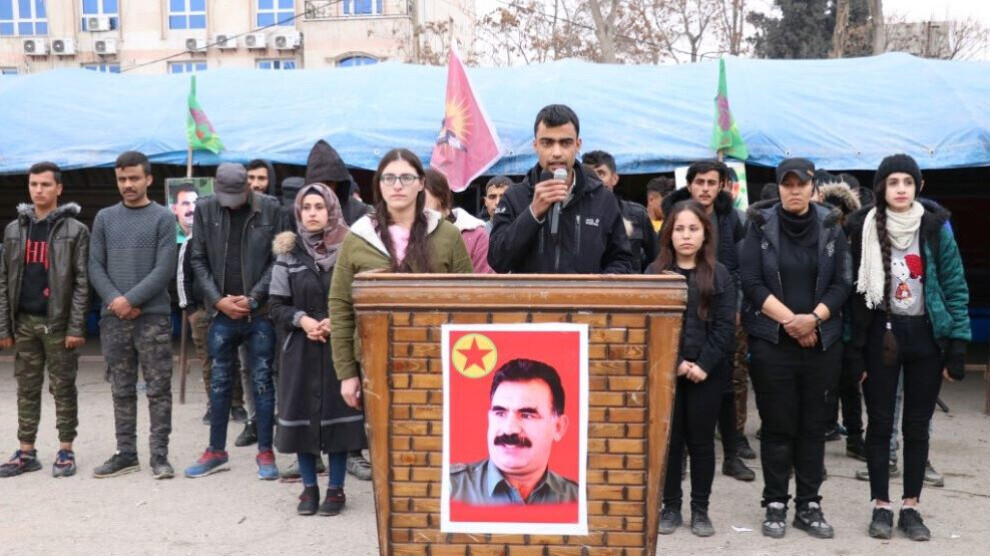The Revolutionary Youth Movement of Syria has collected signatures in Manbij for the removal of the PKK from the list of terrorist organisations in the EU. The internationally-led campaign was launched last November by the Justice for Kurds initiative and calls on the Council of the European Union "in the interest of peace, democracy and human rights" to remove the Kurdistan Workers' Party (PKK) from the EU terrorist list. In the campaign, the initiative highlights that the classification of the PKK as a terrorist organisation serves as a justification for attacks on Kurds and as a reason for war, and leads to "endemic inequalities being overlooked and social problems not being addressed". The peace initiative is supported by internationally known personalities from politics, civil law, art and culture, including Austrian writer Elfriede Jelinek, Afghan women's rights activist Selay Ghaffar, German international law expert Norman Paech and Slovenian philosopher Slavoj Zizek.
At the beginning of the signature collection in Manbij, Ahmed Cemili, spokesperson of the revolutionary youth movement, made a statement calling for participation in the worldwide campaign. Another youth movement activist said: "The PKK is fighting for coexistence, brotherhood of peoples, freedom and equality on a national and global level."
PYD politician Nermin Himedi said: "We call on states and human rights organisations to end the isolation of Abdullah Öcalan and remove the PKK from the terror list."
Hiba Ehmed of the Zenûbiya women's organisation said, "The PKK is fighting against the capitalist powers and wants to liberate all oppressed peoples. It is fighting to build a democratic and ethical society."
The campaign in multi-ethnic Manbij involves the institutions of the autonomous administration, political parties, internal security forces, the military council, women's organisations and tribal elders.

Ethnic and linguistic mosaic
Manbij is an ethnic and linguistic mosaic whose population consists of about 70 per cent Arabs, 20 per cent Kurds, five per cent Turkmen and a small number of Circassians and Armenians. The populations have been divided for decades by tribalist conservative policies promoted by the Syrian regime. During the years under ISIS control, this policy of division intensified.
Until its liberation by the Syrian Democratic Forces (SDF) in August 2016, Manbij represented an important location for ISIS, as a large part of its supply and foreign trade relations took place via the Turkish border. The liberation of Manbij meant the disruption of supplies to ISIS by the regime in Ankara and heralded the end of the self-proclaimed caliphate's territorial rule in spring 2019. The region is defended by the Manbij Military Council, an affiliate of the SDF, against the permanent attacks of the Turkish army and its Islamist mercenaries. All population groups are represented in the Manbij civilian council, and the principle of gender-equal dual leadership applies in all bodies.















